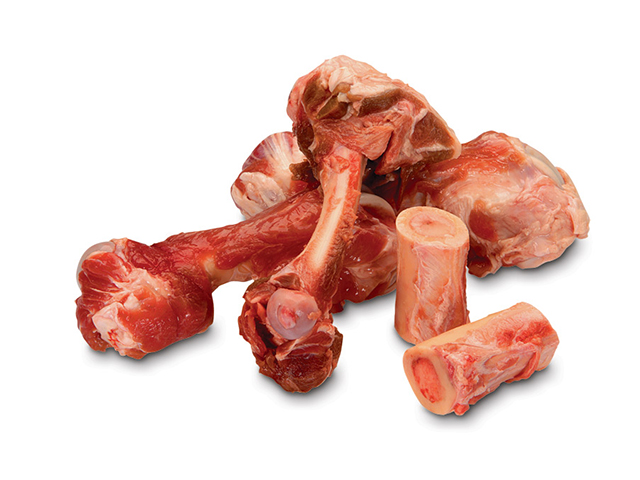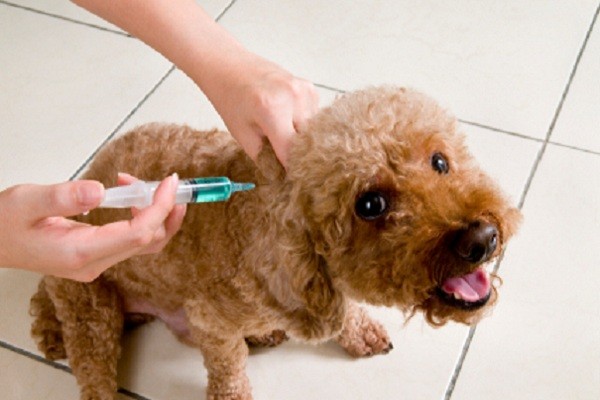It’s not rocket science — every dog owner knows dogs need to chew. And they happily purchase a variety of chew treats for their dogs. However, choosing a safe and healthy treat is not an easy task — it seems every day we are seeing another recall of chews for antibiotic residues, salmonella, or some yet to be determined, toxic substances. So many dogs have died from toxic jerky treats made in China. The recalls of these treats continues to expand, and I urge everyone to not purchase any jerky…
Read MoreCategory: Good Pawrenting
Why giving your pooch too many veggies is not healthy
By Evan Price While there is some popular opinion that dogs should be classified as omnivores, they are widely regarded as carnivores. The word carnivore literally translates into “to devour flesh”, and if this is what dogs are meant to do, then why would they need vegetables in the diet? After all, you would never find a dog scavenging in a cornfield for his next meal. The answer to this is simple. Obligate carnivores, such as cats, derive nearly all nutrition from meat. They may consume a small amount of…
Read MoreWhy do our dogs eat grass?
Who hasn’t wondered, “Why does my pet eat grass?”, right? The truth is there isn’t one clear reason. What we do know is that eating small amounts of grass can be a harmless, albeit curious, thing for a perfectly healthy dog or cat to do. But when nibbling turns into gulping great hunks of the stuff — and grassy vomit hits the kitchen tile — it’s time to wonder what’s going on. Causes Your vet may consider several reasons your pet is eating grass, including these: 1. Behavioral drives. Pica is a…
Read MorePet Poisons From A to Z — 26 Common Items That Are Dangerous to Cats and Dogs
by Dr. Mary Fuller It can happen to even the best pet owners. You turn around for one second and the dog is into the chocolate that was sitting on the counter, or the cat has discovered the Easter lily you thought was safely out of the way. “We just don’t realize how determined our pets are to eat the things they shouldn’t,” says Dr. Tina Wismer, DVM, medical director for the ASPCA Animal Poison Control Center. Of the more than 180,000 cases that the organization handled in 2012, most of…
Read MoreLucky dogs get shot at diabetes cure
Researchers from the Universitat Autonoma de Barcelona (UAB), led by Fatima Bosch, have shown for the first time that it is possible to cure diabetes in large animals with a single session of gene therapy. As published in Diabetes, the principal journal for research on the disease, after a single gene therapy session, the dogs recover their health and no longer show symptoms of the disease. In some cases, monitoring continued for over four years, with no recurrence of symptoms. The therapy is minimally invasive. It consists of a single…
Read MoreDogs understand human perspective
Dogs are more capable of understanding situations from a human’s point of view than has previously been recognised, according to researchers. They found dogs were four times more likely to steal food they had been forbidden, when lights were turned off so humans in the room could not see. This suggested the dogs were able to alter their behaviour when they knew their owners’ perspective had changed. The study, published in Animal Cognition, conducted tests on 84 dogs. The experiments had been trying to find whether dogs could adapt their…
Read MorePet obesity: Tips on how to avoid killing your dog
Much like their human owners, animals have to deal with unwanted weight, too. Animal obesity is an epidemic across the country with more than 50 percent of pets now overweight. My little girl Nadya, an adorable 7 year old bichon/poodle mix often overindulges in food. Every time she thinks she does something good, she expects a treat. You spoil them and then you don’t realize what you’re doing. To lose weight, cutting calories is the key. If you look at the calorie content of those treats, it would comprise probably…
Read MoreVaccinations: A word of caution for our animals and why titer tests are a better option
It’s no surprise to many disgruntled pet owners that many veterinary clinics rely on revenue from vaccines. Happily for the dogs, many vets have replaced vaccinations with titer testing. The problem with this is twofold: one, they are replacing yearly or triennial vaccination with yearly or triennial titer testing, and two, titers are expensive. Once a dog has a positive titer, he is considered protected for life. This means he no longer requires more vaccinations (most of the core vaccines have been shown to protect dogs for 7 to 15…
Read More







